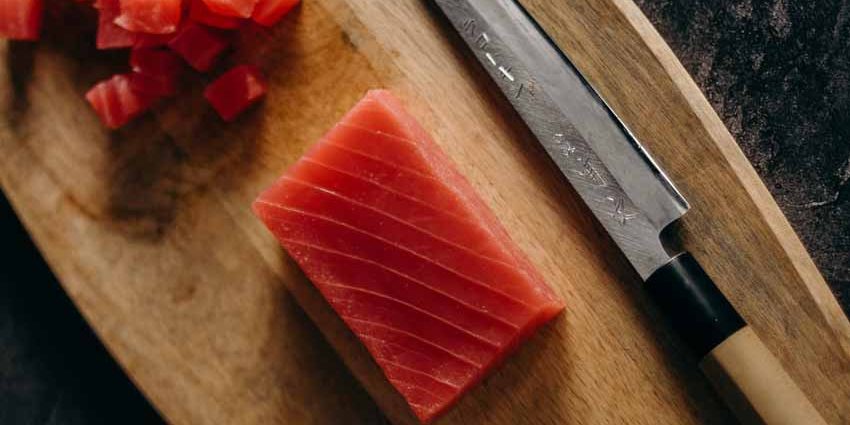Launches in the fish and fish substitute sector last year have focused on sustainability and making fish and shellfish a delicious, nutritious and convenient option.
Don’t forget that opportunities offered by the growing trend in reduced meat consumption, which is enabling fish and shellfish to take centre stage on the plate. At the same time, it does need to be presented in ultra-convenient formats and versatile flavours that can attract consumers.
Another factor that favours fish is that it is perceived as a healthy option. Fish companies can compete with plant-based meat alternatives by making use of these associations, communicating the wide range of nutrients and the sustainability credentials of shellfish.
What are the latest innovations in fish products?
Consumers pay attention to where fish comes from and how it has been caught, and so sustainability is increasingly important. According to a study in the UK by Mintel, one third of the people surveyed there check the labels to get information about the sustainability of the product.
In order to respond to this growing concern amongst consumers, brands are making an effort to explicitly communicate their sustainable fishing strategies on the packaging. Proof of this development can be seen in the number of mentions of sustainable fishing in 43% of the launches in 2021, most of which bear MSC (Marine Stewardship Council) seals or affidavits of origin.
Brands and distributors are also taking measures to deal with the impact of plastics in the oceans with environmentally friendly packaging systems such as the fibres certified by the Forest Stewardship Council (FSC).
One example of this type of initiative can be found at Lidl UK, where fish product packaging was redesigned, using a system based on plastics gathered on the beaches and coasts of South East Asia.
Notable examples of formats used in launches last year include:
- Annasea PokeMeal Kit: (USA) that enable simple poke bowls to be made at home.
- Tuny Sport: (Mexico) suitable for active people and sports players, since the product is enriched with vitamins, minerals, amino acids and l- carnitine.
- Skandia salmon and smoked cod tartare: (Spain), a ready to eat tartare.
Innovation in fish substitutes is gaining new ground
Growing consumer concern about the environmental impact of meat consumption has opened up new opportunities for meat alternatives, and for fish substitutes. In fact, according to Mintel, 60 % of consumers of meat alternatives in Germany express interest in trying out plant-based fish products.
Although the fish substitute sector is less well established than the meat alternative industry, it is making major efforts to reach a wider public by innovating and improving flavours, textures and nutritional quality.
Fish substitutes continue to be a relatively small niche in comparison to meat substitutes, but there are a growing number of launches of this type of products in Europe, mostly based on plant proteins such as soy or wheat.
Most of the new product launches come from major brands, although there were more launches of own-label brands last year, especially by discount store chains such as Lidl, Aldi and Penny.
Given this context of more and more product launches and increasing innovation in the market, major brands will have to assess the value proposal of fish substitutes. There are several factors that can increase consumer interest in fish alternatives that go beyond the health benefits from eating plant-based foods. Environmental positioning and innovation with a range of species will be key factors for long-term success.
Another factor to bear in mind is that plant-based marine products can also be used to imitate rare or endangered species and others that are more difficult to catch, clean and transport, such as the sea urchin or the bluefin tuna.
Notable innovations in this sector include:
- Ma De Fish Tofu: (Thailand) Fish tofu with probiotics
- Hooked toonish (Sweden) plant-based fish
- Moving Mountains Fish Fingers: (UK) Plant-based fish fingers
- Vegan Zeaster No Salmon Sashimi: (USA) Part of Vegan Fine Foods, the first fresh vegan salmon.
